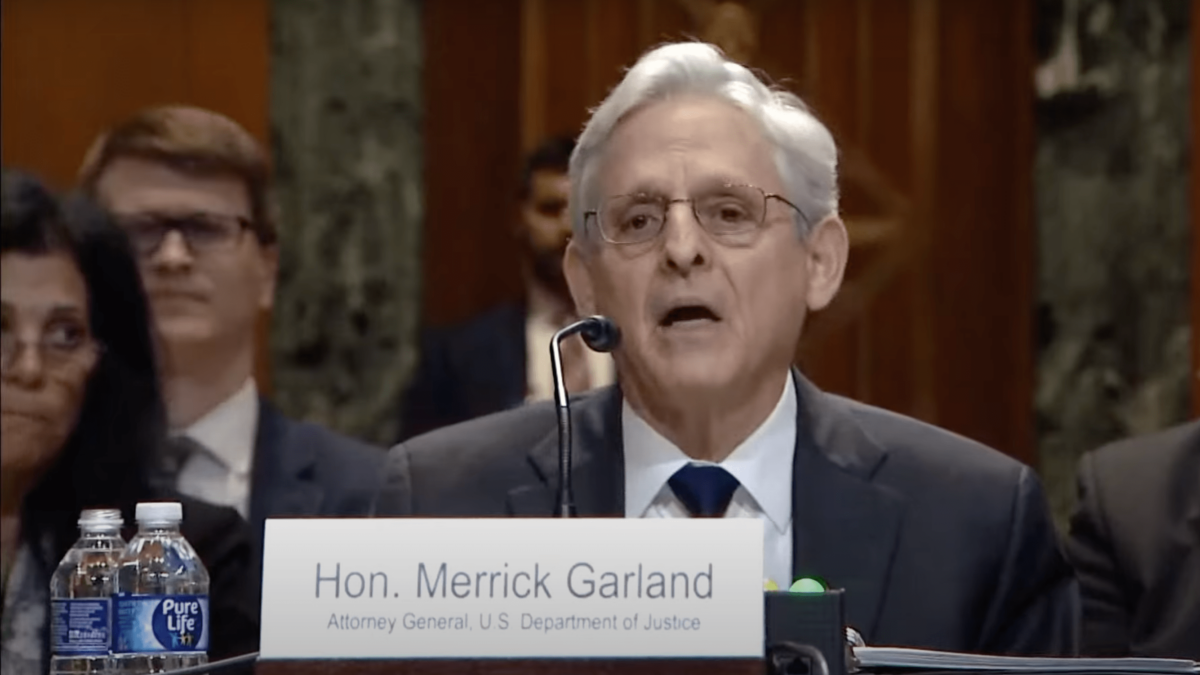
Training slides obtained by Sen. Katie Britt from a Department of Justice whistleblower show that the federal law enforcement agency responsible for protecting Republican-nominated Supreme Court justices ahead of its Dobbs v. Jackson decision explicitly warned against arresting members of the pro-abortion mob — even when they violated federal law.
18 U.S.C. §1507 prohibits anyone with “intent of interfering with, obstructing, or impeding the administration of justice, or with the intent of influencing any judge, juror, witness, or court officer” from “pickets or parades” in or near the court or justices’ homes. People who violate that law are subject to fines or up to one year in prison.
Mere weeks ago, Garland reaffirmed to the Senate that it is “a federal crime to protest outside of a judge’s home with the intent of influencing that judge as to a pending case.”
“It is clear when you look at these slides, the Marshals were not given those directives,” Britt pointed out to Garland during a Senate Appropriations subcommittee hearing Tuesday.
Hundreds of activists, encouraged by the Biden White House, descended on justices’ homes last summer to threaten the justices who, in a leaked copy of their decision, signaled intent to overturn Roe v. Wade. Yet, aside from Nicholas Roske, who was caught outside of Justice Brett Kavanaugh’s home with plans to assassinate him, the DOJ refused to arrest or prosecute any of the activists that habitually harassed the justices.
Garland defended this decision to the Senate Judiciary Committee on March 1 by blaming the DOJ’s enforcement arm for failing to arrest anyone he could prosecute.
“U.S. Marshals have the authority to arrest anyone under that statute or any other federal statute,” Garland insisted. “The attorney general does not make the decision to arrest. The Marshals on the scene — they do make the decision of whether to arrest.”
Official directives revealed by Britt on Tuesday, however, show that Marshals were supposed to coordinate with DOJ U.S. Attorney’s Offices before enforcing the law because it would be “counter-productive” to arrest people the DOJ had no plans to “charge and prosecute.”
In fact, Marshals were explicitly told not to arrest the pro-abortion protestors because “making arrests and initiating prosecutions is not the goal of USMS presence at SCOTUS residences.”
Slides from the law enforcement agency briefing claim that “protest is not synonymous with unlawful activity” and that Marshals should “avoid, unless absolutely necessary, any criminal enforcement.”
“Do not engage in protest-related enforcement actions beyond that which are strictly and
immediately necessary and tailored to ensure the physical safety of the Justices and their families,” another slide warns.
“Were you, at any point before your testimony in front of the Judiciary Committee, aware of these training materials or the fact that the Marshals had been heavily discouraged from making arrests?” Britt asked Garland.
“This is the first time I’ve seen the slide deck,” Garland replied before refusing to amend his previous contradicting testimony.









